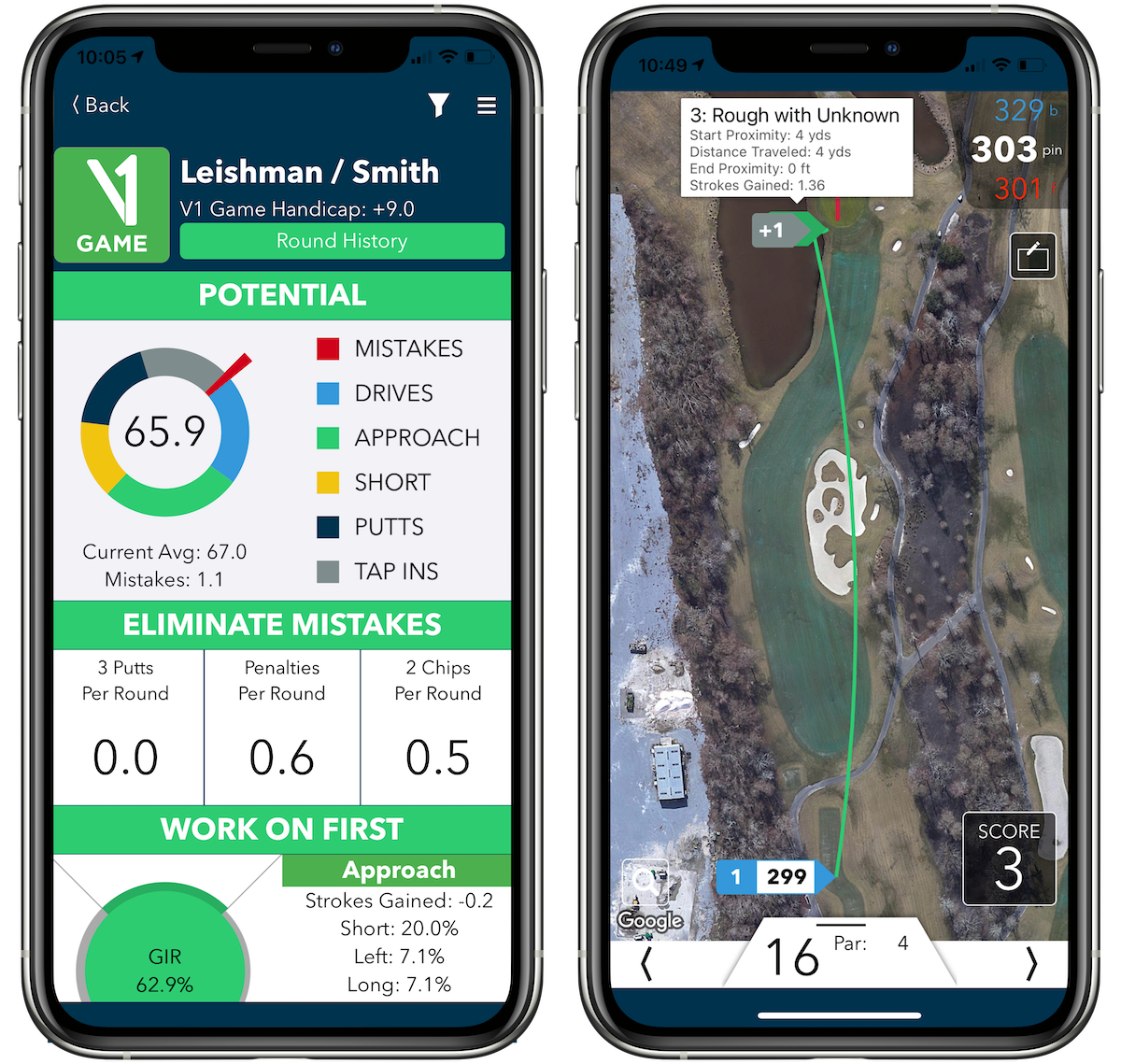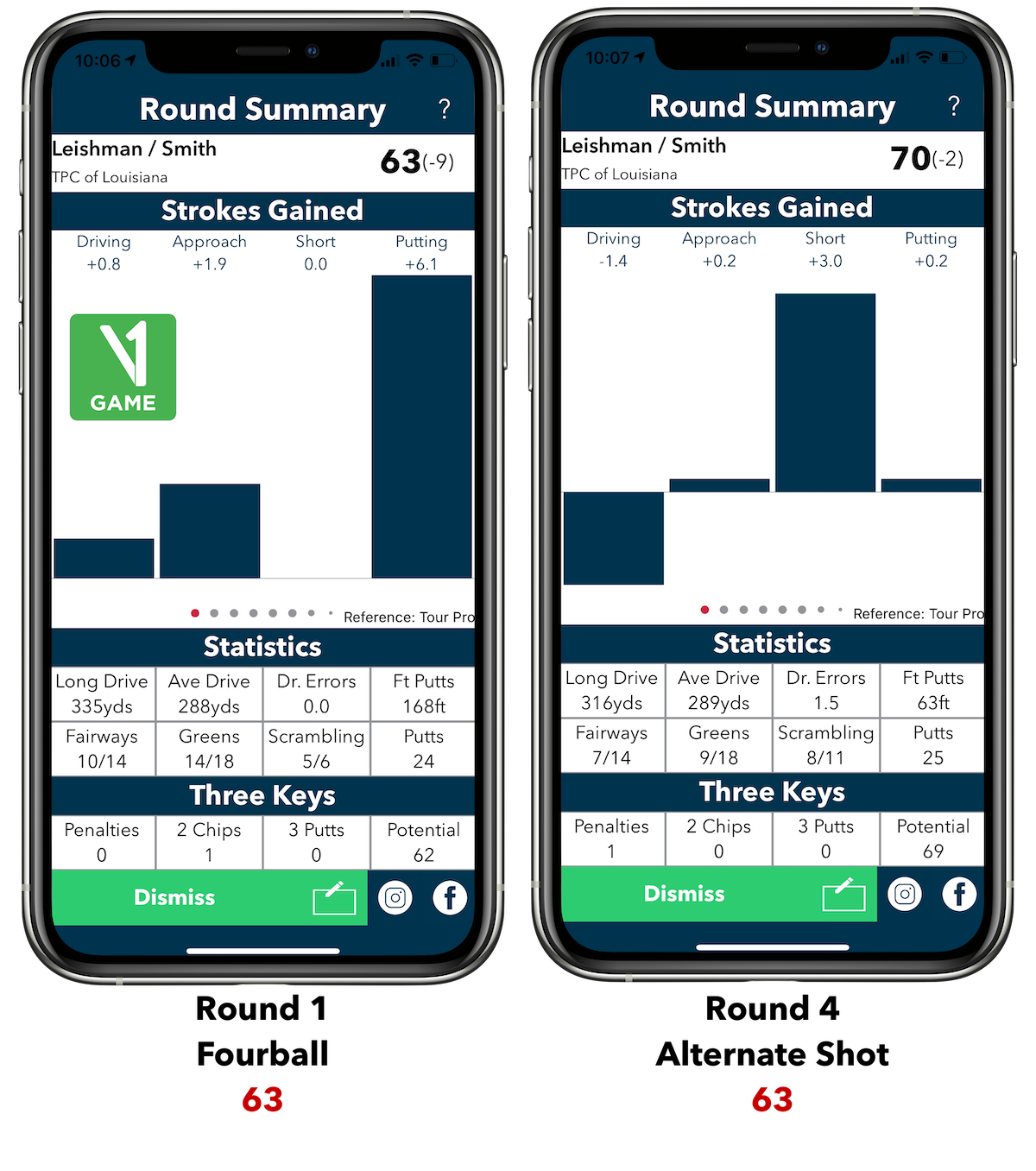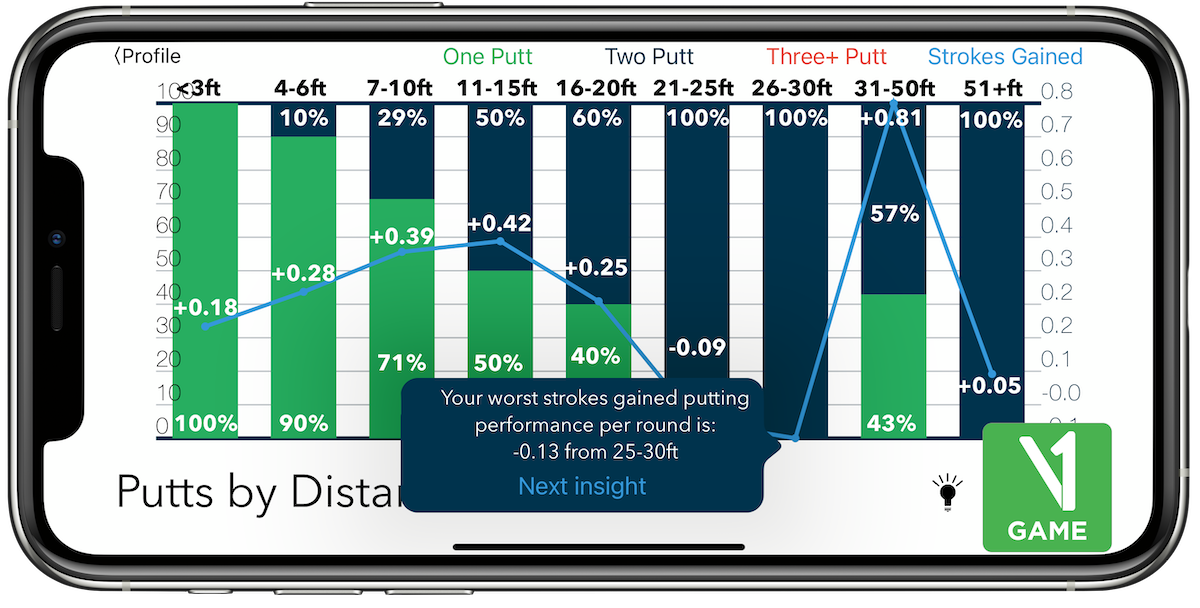In “Ways to Win,” we track the PGA TOUR winner’s rounds using the Roundabout mobile app and then analyze how they got the job done using the same tools available to Roundabout users.

The Zurich Classic of New Orleans is a unique event on the PGA Tour as it is the only team event on the schedule where two tour players pair up for the week. The format is quite different from a typical week of stroke play on the PGA Tour. The first and third rounds are played as a Fourball, where the lowest score of the two players is counted as the team score. The second and fourth rounds are played as alternate shot, where players alternate taking shots while playing a single ball into the hole. This also allows for a unique view into how each format impacts Strokes Gained and the quality of golf. The Fourball rounds allow players to swing more freely and take on more risk as they have two chances at a low round, while alternate shot can be absolutely brutal as nerves can kick in when there is potential to leave your partner high and dry.
The format and the weather was perfect for a couple of Aussies to battle a couple of South Africans and play some spectacular golf. In the end, it took 73 holes to determine a champion as the groups traded blows into a playoff late on Sunday. Cameron Smith and Marc Leishman were able to secure the final par and take down Louis Oosthuizen and Charl Schwartzel.

Using the Strokes Gained Stacked chart from Roundabout, the impact of the format is immediately apparent as the Total Strokes Gained seesaws between a high of gaining 8.9 strokes on the field to losing 0.3 strokes. That is a delta of over 9 strokes between a Fourball (Best Ball) round and Alternate shot. While, intuitively, it makes sense that playing two balls (Fourball) would be easier than having a single crack at it (Alt Shot), there are additional mental hurdles typically in Alt Shot. Therefore, it is interesting to see which parts of the game are most impacted by the format. What jumps off the page at a glance for the Fourball rounds is putting (+6.1) in round 1 and Short Game (+5.3) in round 3. The putting makes sense. If you know your partner has par in the bag, it makes that birdie put much more aggressive, however that mindset also downplays just how good Cam Smith was playing. Leishman said as much after the tournament that he believed Smith would have won the event easily had it been an individual stroke play event.
As a team, they made 168 feet of putts in Round 1. The PGA Tour average for a round is closer to 70 feet. The short game from round 3 is somewhat surprising as to have significant strokes gained in the short game category, you typically have to miss greens. Smith and Leishman gained 2.5 strokes on two holeouts from off the green on 3 and 16. Two different ways to shoot 63, both relying pretty heavily on the play of rising star Smith.

Shifting attention to rounds 2 and 4, which were alternate shot, all strokes gained categories suffered. Specifically, putting and approach were impacted. If you’ve ever played a round of alternate shot, this is relatable. One challenge with the format is that it is much harder to adjust to the greens. Since you are hitting half as many putts and, oftentimes, you are left cleaning up a mess from your playing partner, it is that much harder to get a feel for putting. Add the pressure of not wanting to leave your partner in a tough position and it typically leads to more tentative putting. Still, the team gained strokes putting overall despite only making 63 feet of putts in the final round. I would expect short game performance to increase in Alternate Shot rounds. Mainly because there are typically more opportunities as more greens are missed. Cameron Smith and Leishman ‘ham and egged’ this format perfectly. Picking each other up with great putts and chips at the right times to keep momentum, including a clutch chip-in from Leishman on 16 in the final round.
The team played particularly well in all categories, but they gained the most strokes with the putter. For the week, they gained more than 8.5 strokes over a typical PGA Tour field with the flat stick. How did they do it? Reviewing the Putting by Distance chart from Roundabout, they didn’t have a single three putt. Additionally, they gained strokes on the field from every distance except from 21-30 feet. They made 50 percent of their putts from 11-15 feet. The 50 percent mark is typically closer to 8 feet on the PGA Tour, meaning the duo was significantly outperforming the field with the flatstick.

Lastly, if you want to win in any week on the PGA Tour, you have to minimize mistakes and play to your potential. Referencing the Roundabout Virtual Coach, Leishman and Smith did exactly that. For starters, using the new Roundabout Handicap, the duo played to a +9.0. Incredible! They averaged only 1.1 mistakes per round consisting of a combination of penalties and two chips. A two-chip is when you miss the green from inside 75 yards. Across all four rounds, the team averaged a 67. Had they avoided all mistakes, they could have averaged 65.9 and potentially avoided the playoff. Despite making the rare mistake, they covered them up well with stellar play. The perfect example is the 16th hole on Sunday where an aggressive drive from Smith narrowly missed the green and found the water. Rather than harping on his partner for the mistake that was likely to cost the lead with just a few holes left, Leishman approached the chip with a great attitude telling his playing partner that he was going to hole the chip. He did exactly that and turned bogey into birdie.

There is something about a good attitude manifesting a good result. Leishman believed it could happen and allowed himself to take his best attempt at it. It would be so easy to get down in that moment and blame your partner for potentially costing you hundreds of thousands of dollars and a PGA Tour title. Good teammates and good friends pick you up. Ham and egg. The perfect breakfast combo and the recipe for good team golf.
If you are looking to pair up with a buddy, want to see how you stack up to the tour pros, or just want to measure your handicap trend, Roundabout can help you have fun and reach your goals with its all new Friends mode, Roundabout Handicap Tracking, and the most advanced analytics available in a golf app. Download the free app today and get ready to play your best golf.
Download Roundabout in the app store today and start tracking your golf performance like the pros.


